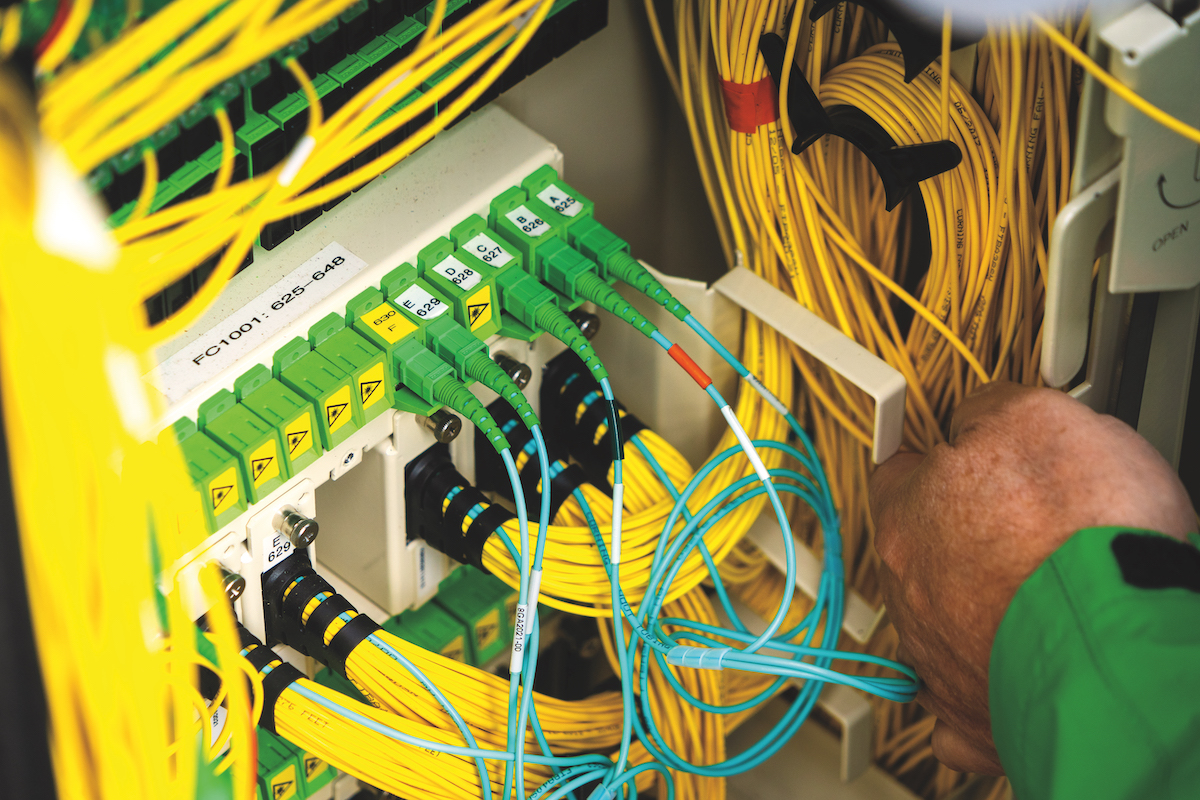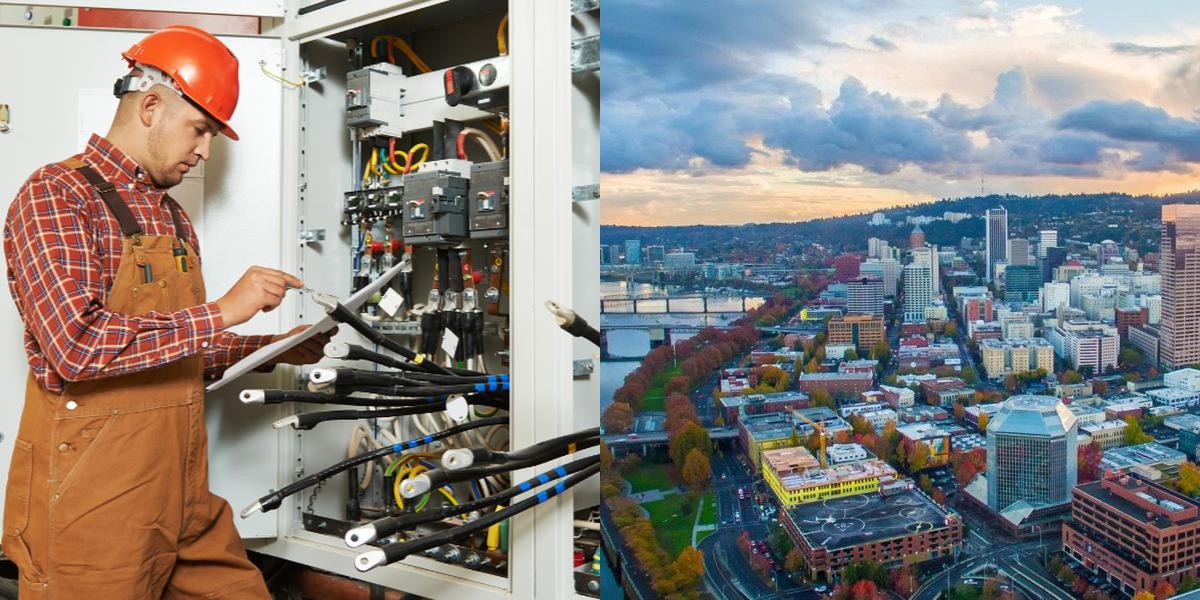To become an electrician in Oregon, complete an apprenticeship program and pass the state exam. Apprenticeships typically last four to five years and are a combination of on-the-job training and classroom instruction.
This hands-on experience is crucial for mastering the skills and knowledge necessary for obtaining an electrician’s license in Oregon. Becoming an electrician in Oregon is an excellent career choice for those interested in working with electrical systems and helping to maintain the safety and functionality of buildings and infrastructure.
The path to becoming an electrician involves a combination of formal education, on-the-job training, and passing a licensure exam. By following the state’s specific requirements and obtaining the necessary experience, individuals can embark on a rewarding and in-demand career as a certified electrician in Oregon.
Education and Training
To become an electrician in Oregon, individuals must complete an apprenticeship program and pass the state licensing exam. Training involves hands-on experience and classroom instruction to develop skills in electrical work. Following these steps, aspiring electricians can start a rewarding career in the field.
Welcome to our comprehensive guide on how to become an electrician in Oregon! In this section, we will focus on the crucial aspect of education and training, which lays the foundation for your career as an electrician. Oregon offers various pathways for aspiring electricians to gain the necessary knowledge and skills, including apprenticeship programs and technical schools. Let’s explore these options in more detail.Apprenticeship Programs
What is an apprenticeship program? An apprenticeship program combines classroom instruction with on-the-job training, providing a hands-on learning experience. It allows aspiring electricians to work under the guidance of experienced professionals, gaining practical skills and industry insights. Apprenticeship programs typically last anywhere from three to five years, depending on the program and the individual’s progress. How to join an apprenticeship program in Oregon? In Oregon, aspiring electricians can apply for apprenticeship programs through organizations such as the Oregon-Columbia Chapter of the National Electrical Contractors Association (NECA) and the International Brotherhood of Electrical Workers (IBEW). These organizations collaborate to offer apprenticeships that comply with state standards.Technical Schools
What are technical schools? Technical schools, also known as trade schools or vocational schools, provide focused training programs specifically tailored to the electrical trade. These schools offer comprehensive coursework, often covering electrical theory, blueprint reading, electrical codes, safety practices, and practical applications. Why consider attending a technical school? Attending a technical school has its advantages. These programs are typically shorter in duration compared to apprenticeship programs, allowing individuals to enter the workforce more quickly. Technical schools often provide a streamlined curriculum dedicated to electrical trade skills, preparing students for entry-level positions with a solid foundation of knowledge. It’s important to note that both apprenticeship programs and technical schools can lead aspiring electricians to successful careers. Whether you choose hands-on experience through an apprenticeship or comprehensive training from a technical school, the key is to select the path that aligns with your goals and learning preferences. Overall, education and training are vital steps on your journey to becoming an electrician in Oregon. Whichever path you choose, remember that continuous learning and skill development are essential in this dynamic field. Now that we have explored the educational pathways, let’s move on to the next section, where we will discuss licensure requirements for electricians in Oregon.Licensing Requirements
Journeyman Electrician License
An individual seeking to become a journeyman electrician in Oregon must complete an approved training program.
They need to accumulate a certain number of supervised work hours and pass the journeyman electrician exam.
- Complete an approved training program
- Accumulate supervised work hours
- Pass the journeyman electrician exam
Electrical Contractor License
To obtain an electrical contractor license in Oregon, one must be a certified supervising electrician and meet additional requirements.
- Hold a certification as a supervising electrician
- Fulfill specific experience and educational requirements
- Pass the electrical contractor exam
Exam Preparation
Preparing for the electrician exam in Oregon is a crucial step towards your career in the field. Proper exam preparation involves utilizing study resources and potentially enrolling in preparatory courses to enhance your knowledge and readiness for the test.
Study Resources
Utilize a variety of study resources to reinforce your understanding of the material covered in the exam. Some recommended resources include:
- Official NEC Handbook
- Practice exams
- Online study guides
Preparatory Courses
Consider enrolling in preparatory courses tailored specifically for the electrician exam. These courses often provide:
- Comprehensive review of exam topics
- Interactive learning materials
- Access to experienced instructors

Credit: www.prairielectric.com
See Also: How to Become a Plug
Gaining Experience
To become an electrician in Oregon, gaining experience through an apprenticeship program is crucial. Aspiring electricians can acquire hands-on training and practical skills while working alongside experienced professionals. This practical experience will not only enhance their knowledge but also provide them with the necessary qualifications to pursue a career in the electrical industry.
On-the-job Training
One of the most common ways to gain experience as an electrician is through on-the-job training. This involves working alongside experienced electricians to learn the trade hands-on. On-the-job training provides valuable opportunities to observe and participate in real-world electrical projects, allowing you to develop essential skills and knowledge. During this training period, you will become familiar with electrical systems, equipment, tools, and materials, as well as safety protocols and codes. It is a great chance to apply theoretical knowledge acquired in the classroom to practical situations in the field.
Specialized Areas
As you gain experience, you may choose to specialize in specific areas of electrical work. Specialization allows you to focus on a particular aspect of the trade and develop expertise in that area. Some common specialized areas in the field of electrical work include residential, commercial, industrial, and maintenance. Residential electricians primarily work in homes, installing and maintaining electrical systems. Commercial electricians focus on electrical projects in commercial buildings, such as offices, stores, and restaurants. Industrial electricians specialize in electrical installations and maintenance in industrial settings, such as factories and power plants. Maintenance electricians are responsible for troubleshooting and repairing electrical issues in various settings. Specializing in a specific area can increase your marketability and open doors to more specialized job opportunities.
Building a Network
Building a strong network is crucial for individuals aiming to become successful electricians in Oregon. By connecting with industry organizations and participating in professional events, aspiring electricians can gain valuable knowledge, build relationships, and stay updated on the latest industry trends.
Industry Organizations
Joining industry organizations is essential for aspiring electricians in Oregon. These organizations provide valuable resources, training opportunities, and networking events, creating a platform for individuals to connect with experienced professionals and stay informed about the electrical industry.
Professional Events
Attending professional events is a great way for individuals pursuing a career in electrical work to expand their network. Conferences, workshops, and seminars offer opportunities to interact with industry experts, gain insights into new technologies, and build connections with potential employers or clients.

Credit: oregonbusiness.com
Understanding Regulations
Understanding the regulations governing the electrical industry is crucial for anyone aspiring to become an electrician in Oregon. From local codes and standards to safety practices, compliance with regulations ensures the safety of both the electrician and the community they serve.
Local Codes and Standards
As an electrician in Oregon, familiarity with local codes and standards is essential. Oregon Electrical Specialty Code (OESC) outlines the requirements and standards for electrical installations in the state. Oregon Building Codes Division (BCD) governs the code adoption and enforcement process. Adhering to these codes and standards is vital to ensure the safety and functionality of electrical systems.
Safety Practices
As part of understanding regulations, safety practices are paramount in the electrical industry. Electricians must strictly adhere to safety protocols to prevent accidents and ensure their well-being. Oregon Occupational Safety and Health Administration (OSHA) sets guidelines for safety practices to be followed in the workplace. This includes proper handling of electrical equipment, use of personal protective equipment, and adherence to lockout/tagout procedures.
Tools of the Trade
If you’re thinking about becoming an electrician in Oregon, it’s important to familiarize yourself with the tools of the trade. As an electrician, you’ll be working with a variety of equipment and technologies to ensure the safe and efficient installation and repair of electrical systems. In this section, we’ll explore two essential aspects: essential equipment and technology integration.
Essential Equipment
When it comes to electrical work, having the right tools is essential. Here are some tools that every aspiring electrician in Oregon should have in their arsenal:
1. Pliers
Pliers are a must-have tool for any electrician. They come in various types, including long-nose pliers, side-cutting pliers, and combination pliers. These versatile tools allow you to grip, twist, and cut wires with ease.
2. Wire Strippers
Wire strippers are used to remove the insulation from wires without damaging the conductors. They come in different sizes to accommodate various wire gauges, ensuring a clean and precise strip every time.
3. Screwdrivers
A set of screwdrivers is essential for any electrician. You’ll need both flat-head and Phillips-head screwdrivers in different sizes to fit the various screws encountered during electrical installations and repairs.
4. Voltage Tester
Ensuring safety is paramount in electrical work, so a voltage tester is an indispensable tool. This device allows you to check if a wire or circuit is live before touching it, preventing potential electrocution hazards.
In addition to these essentials, other tools like conduit benders, wire cutters, and tape measures are also commonly used by electricians. Investing in high-quality tools will not only make your work more efficient but also ensure your safety on the job.
Technology Integration
In this modern age, technology plays a significant role in the electrical industry. Electricians now rely on a range of technological tools to enhance their work processes:
1. Thermal Imaging Cameras
Thermal imaging cameras allow electricians to detect hidden electrical issues by capturing heat signatures. By pinpointing temperature variations, these cameras can identify potential problems before they escalate, preventing costly damages and ensuring the safety of electrical systems.
2. Electrical Design Software
Electrical design software simplifies the planning and layout of electrical systems. These tools enable electricians to create detailed diagrams and blueprints, ensuring accuracy and efficiency in installations and repairs.
3. Digital Multimeters
Digital multimeters are versatile devices that measure voltage, current, and resistance. They provide accurate readings and can troubleshoot electrical problems by identifying faulty components, making them invaluable tools for every electrician.
By embracing these technological advancements, electricians in Oregon can streamline their work processes, provide better service to their clients, and stay updated with the latest industry standards.
Career Advancement
Advancing in your electrician career in Oregon opens up new opportunities and higher earning potential. Whether aiming for a Master Electrician status or pursuing entrepreneurial ventures, here is how you can progress in this field:
Master Electrician Status
Achieving Master Electrician status in Oregon requires experience, education, and passing the state exam. This advanced credential signifies expertise in electrical systems and allows you to work on complex projects independently.
Entrepreneurial Opportunities
Entrepreneurial opportunities as an electrician in Oregon include starting your own electrical contracting business. By obtaining a contractor’s license, you can bid on projects, build a client base, and have control over your work schedule and earnings.

Credit: dreambound.com
Conclusion
Becoming an electrician in Oregon can be a fulfilling and financially rewarding career choice. By following the necessary steps, such as completing an apprenticeship, obtaining the required licenses, and staying updated on the latest industry trends, you can establish yourself as a skilled electrician in this state.
By putting in the effort and commitment, you can excel in this field and enjoy a successful career as an electrician in Oregon.
